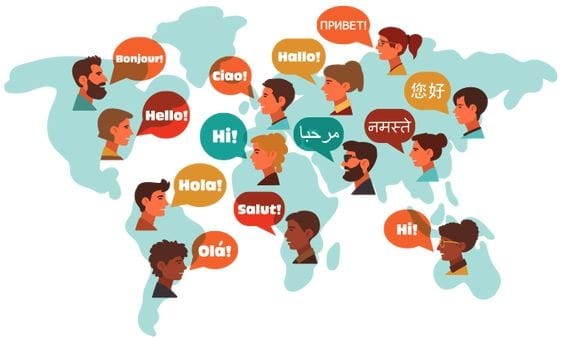The Science Behind Sharing: Why Opening Up is Good for You

In a world where digital connections often supersede face-to-face interactions, the act of genuinely opening up to others might seem increasingly rare. Yet, science tells us that sharing our thoughts, feelings, and experiences is not just a social nicety—it's a fundamental aspect of human wellbeing with far-reaching benefits for both our mental and physical health.
The Neurochemistry of Sharing
When we engage in the act of sharing, particularly when it involves personal experiences or emotions, our brains undergo a fascinating chemical transformation. The star of this neurological show is oxytocin, often referred to as the 'cuddle hormone' or the 'love hormone'. This remarkable neurotransmitter plays a crucial role in social bonding, trust, and attachment.
Research conducted at the University of California, Los Angeles (UCLA) has shown that when we share personal information with others, our brains release oxytocin. This hormone fosters feelings of trust and connection, creating a biochemical bridge between individuals. The release of oxytocin can lead to a cascade of positive effects, including reduced stress levels, improved mood, and even enhanced immune function.
But oxytocin isn't working alone. The act of sharing also triggers the release of dopamine, the 'feel-good' neurotransmitter associated with pleasure and reward. This chemical cocktail creates a positive feedback loop, reinforcing the behaviour of sharing and making us more likely to open up in the future.
Emotional Processing and Mental Health
Beyond the immediate neurochemical benefits, sharing serves as a powerful tool for emotional processing. When we verbalise our experiences, especially those that are challenging or traumatic, we engage in a process psychologists call 'cognitive restructuring'. This involves reorganising our thoughts and gaining new perspectives on our experiences.
Dr James Pennebaker, a psychologist at the University of Texas at Austin, has conducted extensive research on the health benefits of expressive writing, a form of sharing. His studies have consistently shown that individuals who regularly write about their deepest thoughts and feelings experience improved mental health outcomes, including reduced symptoms of depression and anxiety.
Moreover, sharing our experiences with others can help us feel less isolated in our struggles. It's a reminder that we're not alone in our challenges, which can be immensely comforting. This sense of shared experience and mutual understanding is at the heart of support groups and therapy sessions, which have proven highly effective in treating a range of mental health conditions.
Physical Health Benefits
Intriguingly, the benefits of sharing extend beyond our mental wellbeing and into the realm of physical health. A study published in the journal 'Psychosomatic Medicine' found that individuals who regularly confided in others had stronger immune systems compared to those who kept their feelings to themselves.
The connection between sharing and physical health likely stems from the stress-reducing effects of social support. When we share our burdens with others, we often experience a sense of relief that can lower our overall stress levels. Given that chronic stress is linked to a host of health problems, including cardiovascular disease, digestive issues, and weakened immunity, anything that helps mitigate stress can have profound implications for our physical wellbeing.
Building Stronger Relationships
The act of sharing is reciprocal. When we open up to others, we create an environment of trust and vulnerability that encourages them to do the same. This mutual exchange forms the foundation of deep, meaningful relationships.
Dr John Gottman, renowned for his work on marital stability, has found that self-disclosure and responsiveness are key components of strong, lasting relationships. Couples who regularly share their thoughts, feelings, and experiences with each other tend to report higher levels of relationship satisfaction and are more likely to stay together long-term.
This principle extends beyond romantic relationships. In friendships and professional relationships, the willingness to share and be vulnerable can lead to stronger bonds, improved teamwork, and a more supportive social network.
Sharing in the Digital Age
In our increasingly digital world, the nature of sharing has evolved. Social media platforms provide unprecedented opportunities for sharing our lives with others, but they also present new challenges. While these platforms can facilitate connection, they can also promote superficial interactions and create pressure to present an idealised version of our lives.
It's important to distinguish between authentic sharing and performative sharing. The former involves genuine vulnerability and openness, while the latter is more about curating a specific image. Research suggests that authentic sharing, even in digital spaces, can lead to improved wellbeing, while performative sharing may have the opposite effect.
The Power of Listening
While much of the focus is on the act of sharing itself, it's crucial to recognise the importance of being a good listener. When someone opens up to us, our response can significantly impact their experience. Active listening, characterised by empathy, attention, and non-judgmental acceptance, can enhance the benefits of sharing for the speaker.
Moreover, being a good listener can be beneficial for our own wellbeing. Studies have shown that practising empathy and providing support to others can boost our own mood and life satisfaction.
Overcoming Barriers to Sharing
Despite the clear benefits, many people find it challenging to open up to others. Common barriers include fear of judgment, past negative experiences, cultural norms that discourage emotional expression, or simply not knowing how to start.
Overcoming these barriers often involves a gradual process of building trust, both in others and in oneself. Starting small, with low-stakes sharing, can help build confidence. It's also important to choose the right people to share with—those who have demonstrated trustworthiness and empathy.
Conclusion
The science is clear: sharing is not just a social skill, but a vital component of our overall wellbeing. From the neurochemical rewards it provides to the deeper connections it fosters, opening up to others offers a myriad of benefits for our mental and physical health.
As we navigate an increasingly complex and often isolating world, the simple act of sharing our thoughts, feelings, and experiences can serve as a powerful antidote to loneliness and stress. It reminds us of our shared humanity and the strength we can draw from our connections with others.
So the next time you're hesitating to share something personal, remember: science is on your side. By opening up, you're not just unburdening yourself—you're engaging in an act of self-care that can ripple out to benefit your relationships and your community.
In a world that often emphasises independence and self-reliance, it's worth remembering that our ability to connect and share with others is one of our greatest strengths as human beings. It's not just good for you—it's good for all of us.
Join Our Community
Ready to experience the benefits of sharing in a supportive environment? We invite you to join our community at Sharings.Me Here, you'll find a safe space to connect with others, share your experiences, and grow together. Whether you're looking to improve your mental health, build stronger relationships, or simply connect with like-minded individuals, our community is here to support you on your journey.
Don't let another day go by feeling isolated or overwhelmed. Take the first step towards a more connected, healthier you. Visit Sharings.Me today and start reaping the scientifically-proven benefits of sharing. Remember, your story matters, and there's a whole community waiting to hear it. Join us and discover the power of sharing for yourself!




